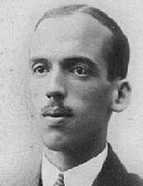

On the one hand, he absorbed a clear encyclopaedic trend in history from perspectives like those of his Lisbon teachers and Damião Peres, as expressed in the chapter on the contextualization of the birth of the Houses of Mercy in Portugal. However, he also showed influences from positivist historiography through prevalence of written documents in his formulation of hypotheses based on scholarship and textual criticism, and the cult of truth, objectivity and impartiality in his writing style, which was described as simple and attractive, or even the primary characteristic of his work as historian, a focus on original and unknown facts about the reality of Porto, which as an active citizen of the city was supplied in promoting the greatness of the city's identity and uniqueness.
Mendes Corrêa's presidency in the Porto city council in the late 1930s meant a return to recognition for Magalhães Basto, who was elected to the leadership of the newly established Cabinet of City History (1937), the current Municipal Historical Archivist of Porto, where he would assert himself as mentor to a new generation of historians in Porto deprived of a Faculty of Arts. This body aimed at organizing and managing the Municipal Archives for the preservation and promotion of historical studies of Porto. Its director planned the beginning of a collection Documents and memories for the History of Porto, which premiered with the volume Vereaçoens: anos 1390-1395 (Municipal Councillors: 1390-1395), a remarkable testimony of his command of Palaeography and historical criticism. While managing the publication of new volumes covering historical studies by other authors, he also sought to rescue past major works on the history of Porto with new revised editions with his own commentary.
In less than two years he transitioned to the head of Municipal Cultural Services, when he also took on the management of the Porto District Archives (keeping this accumulation of roles until his death), was the lecturer in the "Portuguese Studies" extension course and a contributor in Porto's primary cultural associations and the work entitled História da Expansão Portuguesa no Mundo (History of the Portuguese Expansion in the World). Also in 1939 he was named a corresponding academic member of the Portuguese Academy of History, taking part in activities included in the Commemoration of the Centennial of 1940, as well as the Portuguese World Congress, becoming part of the political and cultural surroundings of the Estado Novo, while seemingly distanced from active political militancy.
